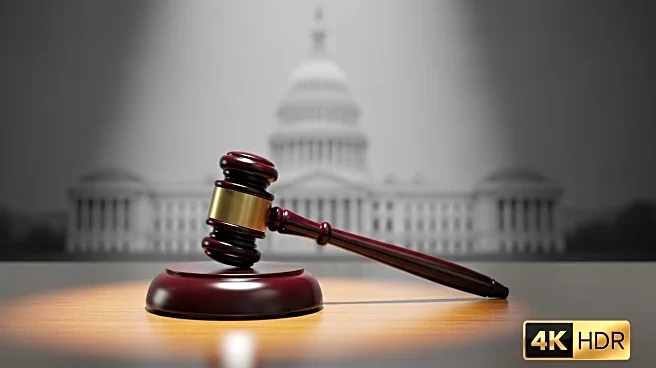What is the story about?
What's Happening?
President Trump's emergency order over Washington, D.C., which federalized its police force, is set to expire. The House is debating 13 bills that could further limit D.C.'s autonomy. These bills propose changes such as removing the district's elected attorney general and allowing the president to appoint someone to the position. Other measures include lowering the age for trying juveniles and altering the bail system. The federal intervention has led to a decrease in crime, but the debate over D.C.'s governance continues, highlighting the city's complex relationship with the federal government.
Why It's Important?
The expiration of the emergency order and the proposed legislation underscore the ongoing struggle over D.C.'s autonomy. The federal intervention has sparked concerns about overreach and the balance of power between local and federal authorities. The outcome of the House debates could significantly impact D.C.'s governance, affecting legal and judicial processes. The situation raises broader questions about federal control over local affairs and the implications for other cities facing similar challenges.
What's Next?
As the emergency order expires, local officials will regain control over police operations, but the federal law enforcement presence is expected to continue. The House committee's debate on the proposed bills will be crucial in determining the future of D.C.'s governance. If passed, these bills could lead to significant changes in the city's legal framework. The political dynamics between local officials and the Trump administration will be key in shaping the future of D.C.'s autonomy.















